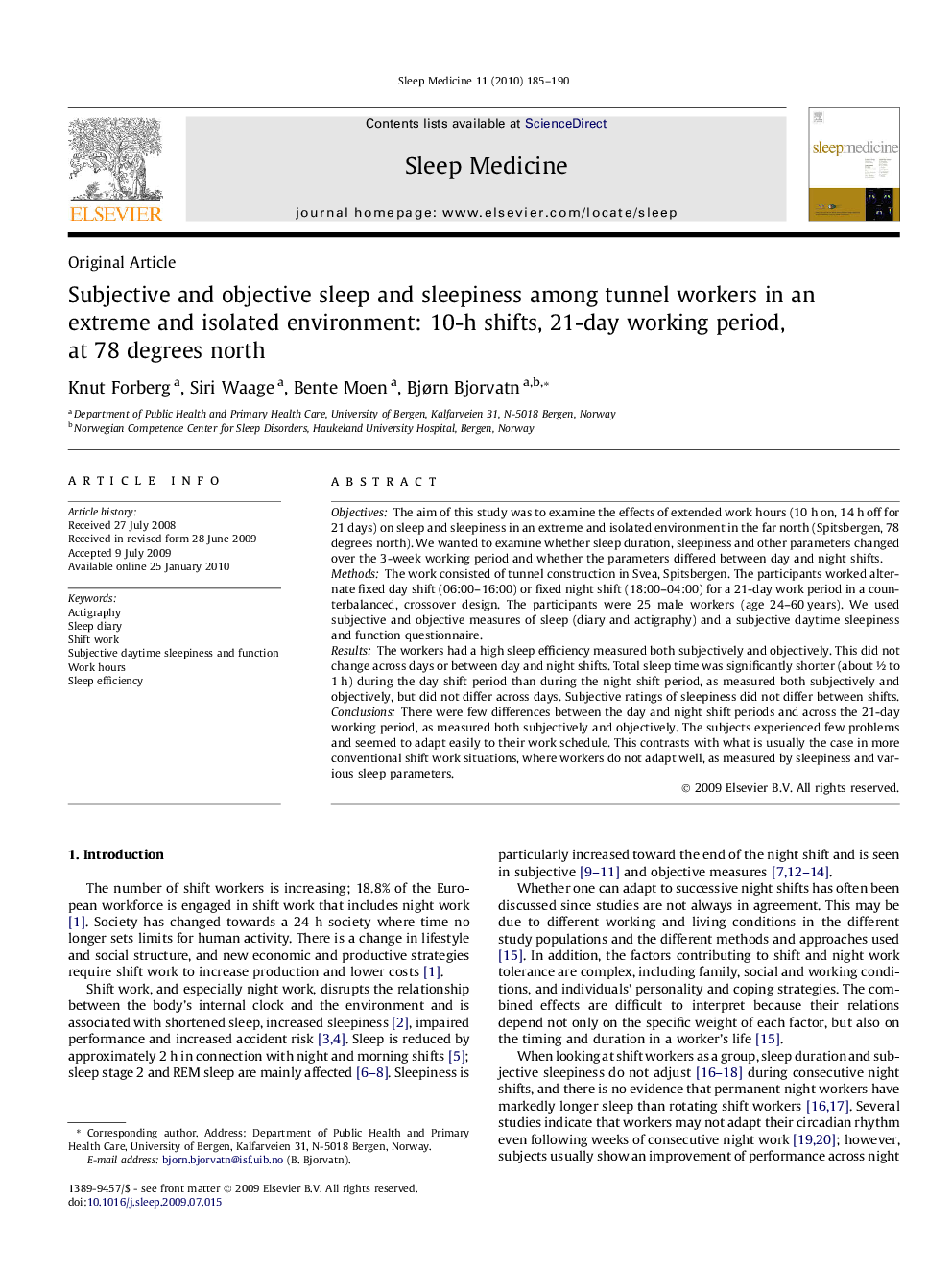| Article ID | Journal | Published Year | Pages | File Type |
|---|---|---|---|---|
| 3176477 | Sleep Medicine | 2010 | 6 Pages |
ObjectivesThe aim of this study was to examine the effects of extended work hours (10 h on, 14 h off for 21 days) on sleep and sleepiness in an extreme and isolated environment in the far north (Spitsbergen, 78 degrees north). We wanted to examine whether sleep duration, sleepiness and other parameters changed over the 3-week working period and whether the parameters differed between day and night shifts.MethodsThe work consisted of tunnel construction in Svea, Spitsbergen. The participants worked alternate fixed day shift (06:00–16:00) or fixed night shift (18:00–04:00) for a 21-day work period in a counterbalanced, crossover design. The participants were 25 male workers (age 24–60 years). We used subjective and objective measures of sleep (diary and actigraphy) and a subjective daytime sleepiness and function questionnaire.ResultsThe workers had a high sleep efficiency measured both subjectively and objectively. This did not change across days or between day and night shifts. Total sleep time was significantly shorter (about ½ to 1 h) during the day shift period than during the night shift period, as measured both subjectively and objectively, but did not differ across days. Subjective ratings of sleepiness did not differ between shifts.ConclusionsThere were few differences between the day and night shift periods and across the 21-day working period, as measured both subjectively and objectively. The subjects experienced few problems and seemed to adapt easily to their work schedule. This contrasts with what is usually the case in more conventional shift work situations, where workers do not adapt well, as measured by sleepiness and various sleep parameters.
